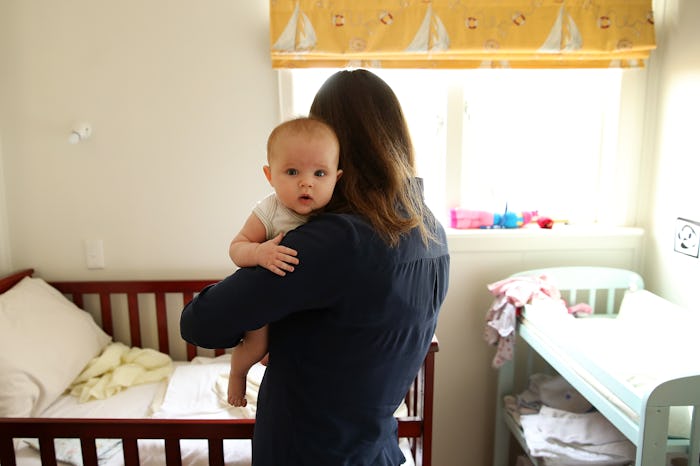News

How The New Tax Bill Will Affect Maternity Leave
President Trump did something momentous just hours before leaving for his Florida estate, Mar-a-Lago, to celebrate the holidays on Friday. He signed a new Republican tax overhaul bill, which had already been passed in both the House of Representatives an Congress, into law. It's a huge ball of yarn to unravel, of course, like anything to do with taxes. And it was passed after just seven weeks, despite being considered widely unpopular by the American people. Now parents need to start figuring out how the new tax bill will affect maternity leave, because the tax overhaul is going to affect essentially every person in the country on some level.
The new tax bill was passed just seven weeks after it was first introduced, which feels like something of a light speed turn around when it comes to the government. Particularly when the bill has been so unpopular with the American people; a recent poll conducted by CNN found that a full 55 percent of Americans do not support the new bill, and 37 percent of people worried that their family would be worse off once it came into affect. Many people see the new tax bill as benefiting the wealthiest in the country and not helping the middle class; CNN found that 6 out of 10 people believed the tax bill would benefit Trump and his family more than it would benefit their own.
Parents and those who are planning to become parents in the near future are naturally concerned about how this new tax bill will affect them and their children. There is some good news for parents; the tax bill will expand the child tax credit, doubling the amount to $2000 for children under the age of 17 (as well as allowing parents with much higher incomes to take advantage of the tax credit). And while The New York Times noted that the tax bill offers businesses a tax credit incentive to offer paid financial leave to new parents, there's a time limit.
For people who are considering having a baby and want to take advantage of paid parental leave, many states already require companies to offer some form of financial leave benefits for parents. Potential parents living in states that don't already require companies to offer paid parental leave, however, could benefit under this new tax plan. Unfortunately, people might want to think about having their babies sooner rather than later; the tax incentives are only for two years (through 2018 and 2019), and only in states where companies don't already offer paid leave, according to The New York Times.
In other words, the new tax plan does not do much for maternity leave. Certainly not nearly as much as Trump's initial proposal for paid parental leave that he unveiled back in May, which would have required all states to offer six weeks of paid parental leave. At the time, Trump's plan was criticized for being too "bare bones," according to Fortune. And now it seems even his bare bones plan to offer paid parental leave would have been more than the short-term financial incentives the GOP are planning to offer companies in states where paid parental leave is not a requirement.
Studies have long shown the benefit of paid parental leave for children and parents. A CNN review of more than 20 studies on the subject found that paid parental leave significantly improves the health and well-being of both children and mothers. It has been shown to reduce infant mortality rate by around 10 percent, offers mothers the opportunity to breastfeed their babies for longer stretches of time, and helps the mental well-being of parents who know they have job security.
And yet, the United States remains woefully behind almost every other country in the United Nations when it comes to maternity leave. This new tax bill doesn't look as though it will help matters much.